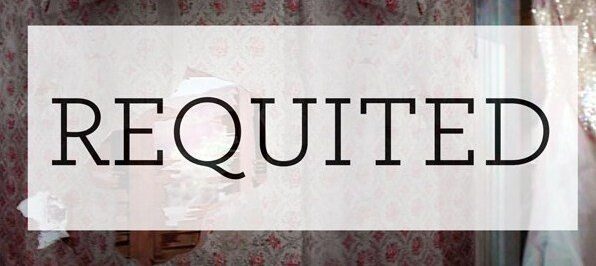One blue-black morning, over birthday cake, my best friend’s father said, “You know, I lived briefly in the house across from yours. There were eight of us in that house. We’d wake some mornings to find all our furniture piled against the kitchen door, stacked like dominos.”
He was a man who aligned his body with mine when he hugged me, his heavy arm across my shoulder, his thick finger tracing my clavicle.
“In the summer we slept on the porch, us kids, and we’d hear the sound of bare feet slapping packed dirt, and then a girl crying out, ‘Momma.'”
He took a spoonful of my cake. I felt sick. In the living room, my best friend shifted in her sleeping bag. His bare foot found mine.
“I was just there this week. Bunch of college kids had a plugged toilet. The things they flush without thinking. I asked about the girl. They got quiet, scared.”
“I don’t believe in ghosts,” I said.
He carried our bowls to the sink. His face was revealed in the window, the circles under his eyes evidence of his naked age. He moved to me, and knelt so his warm breath reached me before his words. “I didn’t either, honey, but that doesn’t mean anything. Not really.” His hands were cold.
Later on, I told my family only his story. We laughed, disbelieving.
I did not think of this until nearly twenty years later, after my brother returned from Iraq and before we had words to explain him like Traumatic Brain Injury or Post Traumatic Stress Disorder. He was himself and not. He would come over for dinner and explain what the contours of a human jaw looked like, how bone splinters toothpick thin, how a medic dug his friend’s tooth from the meat of his bicep.
He told me the story of his first night home. He met friends who had not changed, in a bar that had not changed either. He walked home, ending up on the wrong side of the street, in front of that house. On the porch, a kid leaned beside a keg, holding a stack of solo cups. My brother climbed the stairs once he saw a Marines decal in the front door. He held out his last wrinkled dollars, but the kid nodded to the tattoo on his forearm. “Semper Fi.”
“You live here?” my brother asked. The kid nodded. “That girl still running around the house crying for her mom, piling shit against the kitchen door?”
The kid stepped to my brother with military precision. “You think that shit’s funny?”
My brother held his hands up in surrender.
“I live with it.” He shoved my brother off the porch and then set upon him. My brother did what we all do when confronted by what can’t be named or explained. He raged against it, his fist connecting with the college kid’s nose. The blood proof that one of them was alive.
Barbara Harroun is an Assistant Professor of English at Western Illinois University where she teaches creative writing and composition. Her work has appeared in Sycamore Review, issues of Another Chicago Magazine, Buffalo Carp, Friend’s Journal, and Bird’s Thumb. It is forthcoming in Sugared Water, i70 Review, and the anthology Prairie Gold.
